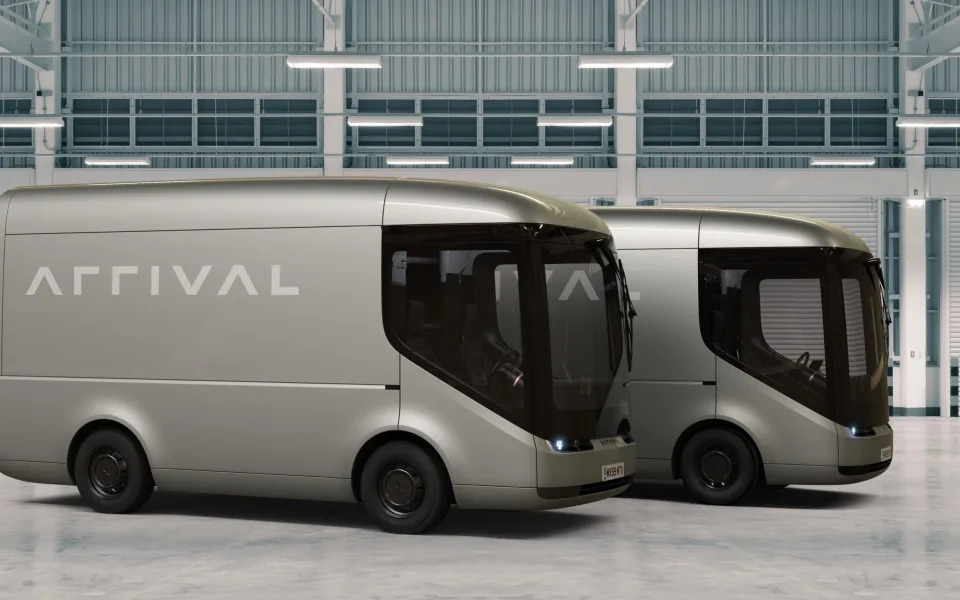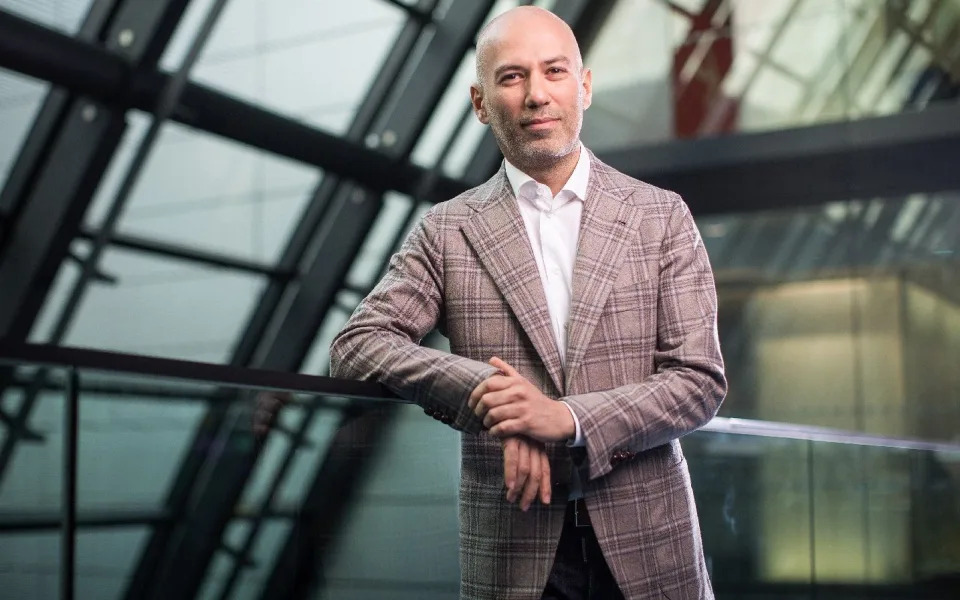Electric van maker once valued at £10bn collapses into administration
James Titcomb
Mon, 5 February 2024

Arrival previously signed agreements to supply numerous companies with vehicles but ultimately failed to sell any finished models
A British electric van maker once valued at $13bn (£10bn) has gone into administration after burning through $1.5bn without having sold a vehicle.
Oxfordshire-based Arrival has appointed administrators at EY to find a buyer for the business, blaming “challenging market and macroeconomic conditions”.
Arrival’s Nasdaq flotation in 2021 was the biggest ever for a British company but shares have fallen by 99.98pc as it became clear that the company was unable to service its debts.
“The group’s liquidity position has been impacted by challenging market and macroeconomic conditions resulting in delays in getting the group’s products to market,” the administrators said.
“As such, the Joint Administrators are now exploring options for the sale of the business and assets of the Companies, including its electric vehicle platforms, software, intellectual property and R&D assets, for the benefit of creditors.”
Last week, Arrival said it would be delisted from the Nasdaq after failing to release financial updates or hold an annual meeting. The company has defaulted on its debts despite seeking to cut costs with repeated job losses.
Arrival secured hundreds of millions of investment from the likes of BlackRock, BNP Paribas and Hyundai before going public. Denis Sverdlov, a Russian businessman who founded the company, stepped down as chief executive in 2022.
James Titcomb
Mon, 5 February 2024

Arrival previously signed agreements to supply numerous companies with vehicles but ultimately failed to sell any finished models
A British electric van maker once valued at $13bn (£10bn) has gone into administration after burning through $1.5bn without having sold a vehicle.
Oxfordshire-based Arrival has appointed administrators at EY to find a buyer for the business, blaming “challenging market and macroeconomic conditions”.
Arrival’s Nasdaq flotation in 2021 was the biggest ever for a British company but shares have fallen by 99.98pc as it became clear that the company was unable to service its debts.
“The group’s liquidity position has been impacted by challenging market and macroeconomic conditions resulting in delays in getting the group’s products to market,” the administrators said.
“As such, the Joint Administrators are now exploring options for the sale of the business and assets of the Companies, including its electric vehicle platforms, software, intellectual property and R&D assets, for the benefit of creditors.”
Last week, Arrival said it would be delisted from the Nasdaq after failing to release financial updates or hold an annual meeting. The company has defaulted on its debts despite seeking to cut costs with repeated job losses.
Arrival secured hundreds of millions of investment from the likes of BlackRock, BNP Paribas and Hyundai before going public. Denis Sverdlov, a Russian businessman who founded the company, stepped down as chief executive in 2022.

Denis Sverdlov stepped down as Arrival chief executive less than two years after having taken the company pubilc
The company had been seeking a potential sale or investment but EY were appointed administrators of its two UK entities, which own its key assets, on Monday.
Arrival had planned to make electric vans and buses at small, robot-led “microfactories” that would be cheaper to set up than traditional car plants.
It had signed agreements with the delivery giant UPS to deliver as many as 10,000 vehicles as well as a deal with Uber to produce cars purpose-built for taxi apps.
The company last year switched its plans to manufacturing in America in an attempt to benefit from Biden administration subsidies, although production never began.
The company had more than $300m in debt as of last June.
A series of other electric vehicle companies that pursued high-stakes US listings during a market boom in 2020 and 2021, such as Lordstown Motors and Nikola, have also struggled.
No comments:
Post a Comment